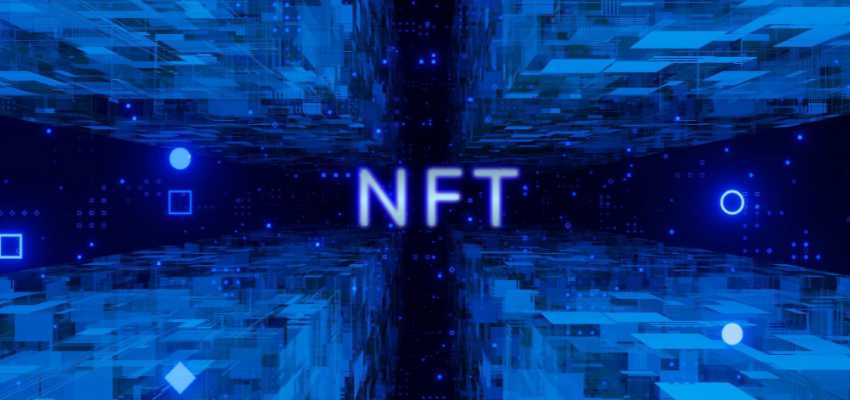Show:
Token Definition: How They Work and Why They Matter
In the world of blockchain and cryptocurrency, understanding the core concepts can be overwhelming for beginners. One such concept is the “token.” What exactly is a token, and how does it play a role in the digital economy? This article will dive deep into the definition of tokens, how they work, and why they are crucial for blockchain technology. Whether you’re a newbie or a seasoned crypto enthusiast, having a clear token definition is essential.

What is a Token?
In the simplest terms, a token is a digital representation of an asset, value, or utility, commonly used within the framework of blockchain technology. It can represent ownership of something tangible, like property, or something intangible, like rights or access to a service. Think of a token as a key that opens the door to various functionalities in a decentralized ecosystem.
Tokens come in many forms, each serving different purposes within the blockchain network. Some tokens represent financial assets, while others offer specific functionalities or utilities within applications. But regardless of their type, all tokens have one thing in common: they are built on top of an existing blockchain network, such as Ethereum or Binance Smart Chain.
Understanding the Types of Tokens
Tokens are categorized based on their function and use case within a blockchain. Here, we’ll explore the major types and their significance.
Utility Tokens
Utility tokens are perhaps the most common type of token in the cryptocurrency space. They are created to provide users with access to a specific product or service on a blockchain network. For example, if you want to use decentralized applications (dApps) or participate in decentralized finance (DeFi) platforms, you will likely need utility tokens to interact with those systems.
Unlike traditional currencies, utility tokens are not meant to serve as investment assets but are essential for using specific blockchain-based services. A prime example is the Ethereum network, where “Ether” is a utility token that users must have to pay for transaction fees or to run smart contracts.
Security Tokens
Security tokens represent a share or ownership in an asset, similar to traditional securities like stocks or bonds. However, instead of being issued by a centralized entity, these tokens are created and distributed through blockchain networks. Security tokens offer holders ownership rights, profit sharing, and even voting power in some cases.
These tokens are heavily regulated, as they are tied to real-world assets and subject to security laws. Their primary appeal is their ability to provide liquidity to otherwise illiquid assets. For instance, real estate or fine art can be tokenized into smaller pieces, allowing investors to own fractional shares.
Governance Tokens
Governance tokens are another significant type of token that allows users to participate in the decision-making process of a blockchain project. These tokens are often distributed to users of decentralized platforms, granting them voting rights on proposals that can shape the future of the network.
The key aspect of governance tokens is their decentralized nature. Instead of having a central authority make all decisions, token holders are empowered to vote on critical matters, such as protocol upgrades or fee structures. In essence, governance tokens make blockchain networks more democratic.
Non-Fungible Tokens (NFTs)
Non-fungible tokens, commonly known as NFTs, are unique digital assets that represent ownership of a specific item, whether it’s art, music, or even virtual real estate. Unlike utility or security tokens, NFTs are one-of-a-kind and cannot be exchanged on a one-to-one basis.
The blockchain token definition of NFTs extends beyond mere collectibles. They can also represent ownership rights in various domains, such as intellectual property or gaming assets. The unique nature of each NFT, powered by blockchain technology, ensures that no two tokens are the same, offering creators and consumers new ways to engage with digital content.

How Tokens Work in a Blockchain Ecosystem
Tokens are not standalone entities; they rely on blockchain networks to function. In a decentralized system, tokens are issued, traded, and transferred through smart contracts – self-executing contracts with the terms of the agreement directly written into the code.
Here’s how tokens typically work in the blockchain ecosystem:
- Creation: Tokens are created through a process called “tokenization,” where an asset or utility is converted into a digital token using smart contracts.
- Distribution: After being created, tokens are distributed to users, investors, or stakeholders in exchange for their participation or investment in a project.
- Transactions: Once in circulation, tokens can be used for various transactions within the network, including buying, selling, and transferring assets or services.
- Governance: In some blockchain networks, governance tokens allow holders to propose and vote on protocol changes, ensuring that the network evolves according to the community’s will.
Why Tokens Matter
The definition of a token in the blockchain world goes beyond mere digital currency. Tokens are fundamental to how blockchain technology operates, offering diverse applications that drive innovation in finance, gaming, real estate, and more. Here’s why tokens matter:
Decentralization
Tokens enable decentralization, which is one of the key tenets of blockchain technology. By removing the need for intermediaries like banks or government authorities, tokens empower individuals and businesses to engage directly with each other in a trustless system.
Financial Inclusion
Tokens also promote financial inclusion by allowing people worldwide to access financial services without needing a bank account. Through decentralized finance (DeFi) applications, individuals can borrow, lend, and earn interest on their tokens, regardless of their geographic location or financial background.
Summing Up
Tokens are an integral part of the blockchain ecosystem, serving various purposes ranging from utility and security to governance and uniqueness through NFTs. Understanding the token definition, as well as how these digital assets work within a decentralized system, is crucial for anyone looking to explore the potential of blockchain technology.
Whether you’re investing in crypto, developing blockchain applications, or simply curious about the future of finance, knowing the definition of a token and its role in the digital economy will help you navigate this rapidly evolving landscape. From decentralization to financial inclusion, tokens hold the key to unlocking the full potential of blockchain.

 Return to Previous Page
Return to Previous Page








